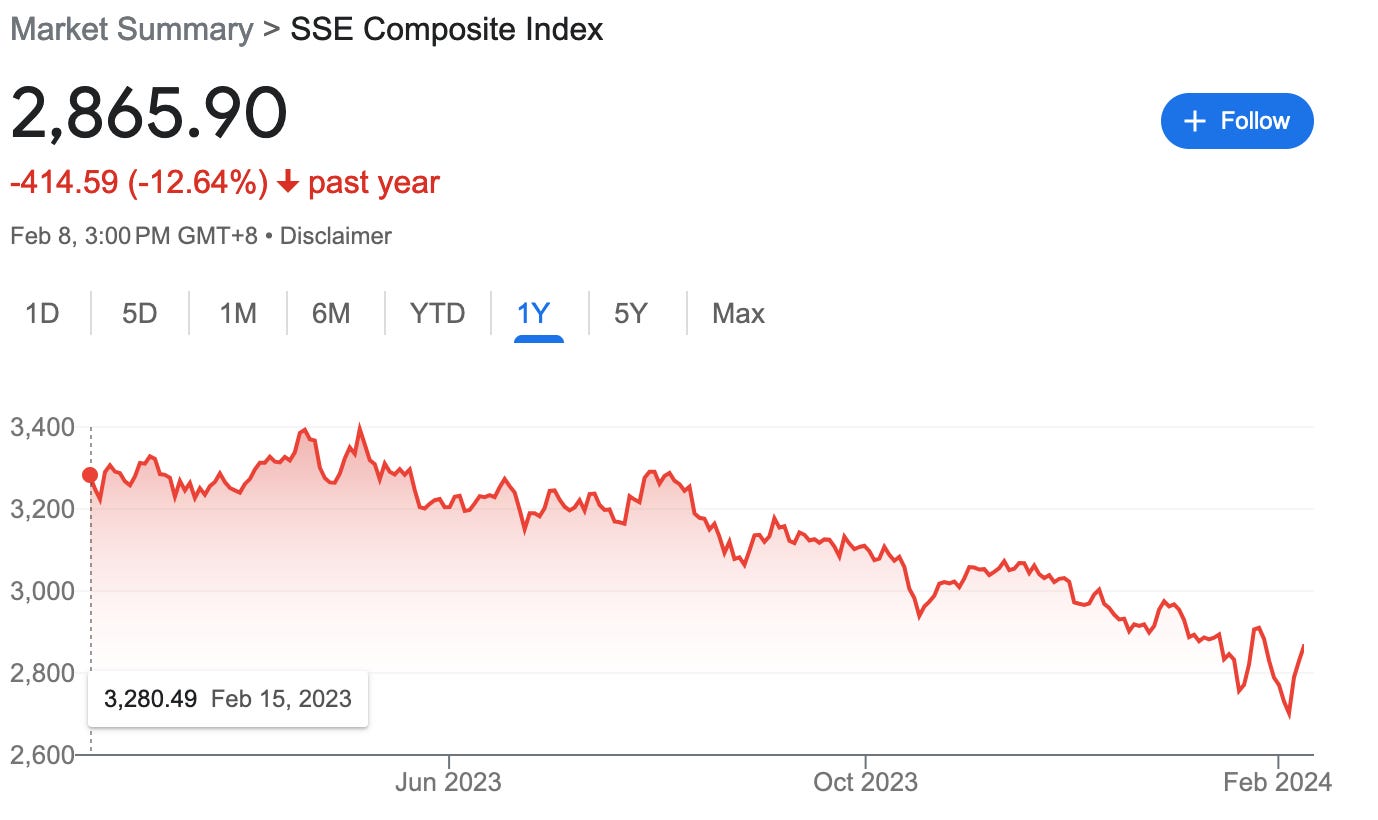Investors flee China’s market as Beijing prepares a massive property bailout
(Originally published Feb. 16 in “What in the World“) With China reportedly on the verge of a massive public bailout of its property market, investors at home and abroad are turning their back on its stocks and heading to America.
The Wall Street Journal depicts Beijing’s plans as a socialist plot by China’s President Xi Jinping to up-end China’s capitalist experiment and seize personal control of the economy, but describes what essentially amounts to just the kind of bailout-cum-fiscal stimulus economists have been calling for. First, the state will use taxpayer funds to buy up failed property projects. Some of those projects will need to be shut down, in which case taxpayers will bear a loss. Others would eventually be sold for a profit.
Making good on Beijing’s investment in failed housing may take a while, because at the same time Beijing plans to build $1.4 trillion in public housing to boost the supply of affordable property, which will naturally weigh further on housing prices by increasing what has already become a massive oversupply. The only difference is that the government would hopefully build its housing where people want to live, instead of doing what property developers did: build massive projects in the middle of nowhere to feed a speculative frenzy for property, hoping that if they built it, residents might actually come.
Sound familiar? It should: it’s exactly what economists recommended to Washington after Lehman’s collapse, except that the U.S. didn’t bail out the property sector, it bailed out the banks that funded its wild expansion. And the hope was that D.C. would pay for a much-needed upgrade of public infrastructure, which because it also smacked of socialism, it didn’t do.
All of this is too little, too late for investors in China’s moribund stock market. China’s investors have long been selling stocks and trying to spirit their money out of the country. Foreign investors, too, have been selling out. Now they’re going so far as avoiding emerging-market funds that include China in their portfolios.

Cornell economics professor and former China wrangler for the International Monetary Fund, Eswar Prasad, has published a new op-ed in The Financial Times echoing one of the themes of this newsletter: to wit, China’s efforts to whitewash its economic data only make matters worse. Prasad writes:
At a time when the biggest problem facing the economy is lack of confidence in the government, such actions are likely to backfire and make things worse. Unrealistically positive rhetoric, which is at odds with the realities that Chinese households and businesses are experiencing, is hardly the solution to China’s economic difficulties.
What worries Prasad is that by the end of last year, China’s President Xi Jinping seemed to agree, delivering a speech that gave a bare-knuckle appraisal of the economy’s problems. China watchers took that kind of candor as a good sign, not only that Beijing understood the problem, but that it was now committed to taking serious steps to address it.
But then China’s Premier Li Qiang arrived high in the Alps to speak at the World Economic Forum’s annual shindig in Davos, Switzerland. Li’s message to the plutocrats gathered in the rare Alpine air: everything is hunky-dory! Li flew out, the plutocrats hit the slopes, and confidence that Beijing would do anything meaningful to stem its own downward slide wiped out.
The tale is in the tape. Here’s a graph of Shanghai’s benchmark stock index over the past year:
As Prasad concludes:
Stifling bad news and trumpeting only positive rhetoric is no substitute for action in solving China’s problems. It is time for the government to acknowledge the difficult realities and respond with a clear policy agenda backed by forceful actions.